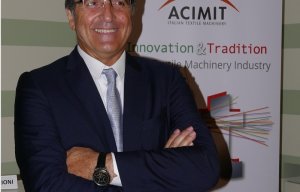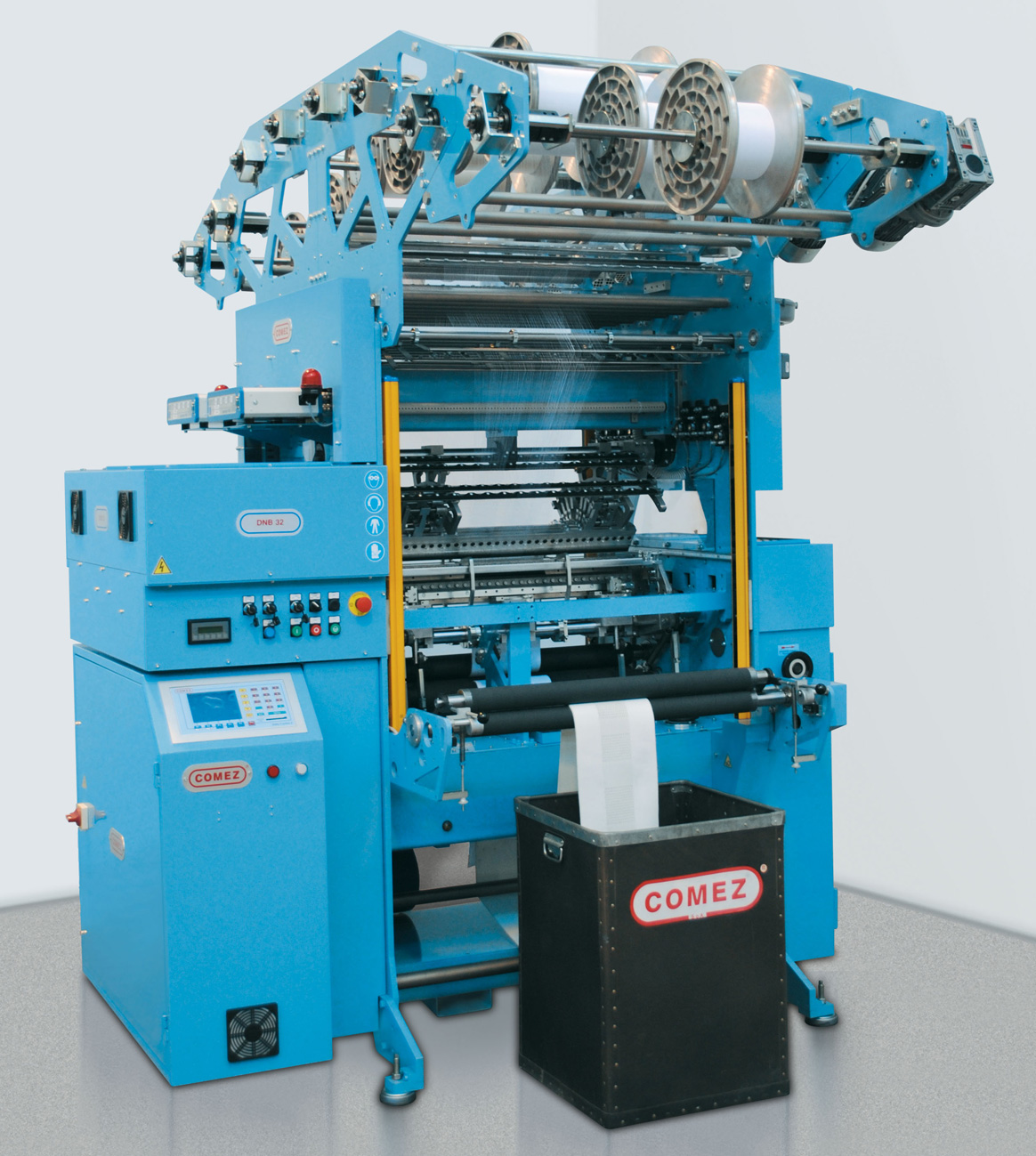
Industry 4.0 leads Italian machinery towards digitalisation
In spite of an increase in production for 2011 by Italian textile machinery manufacturers, forecasts remain cautious for the current year. Provisional figures for 2011 for Italy’s textile machinery sector show a further increase in manufacturing production and exports, following a good recovery in 2010 and a recession hit 2009.

6th February 2012
Innovation in Textiles
|
Milan
 In spite of an increase in production for 2011 by Italian textile machinery manufacturers, forecasts remain cautious for the current year. Provisional figures for 2011 for Italy’s textile machinery sector show a further increase in manufacturing production and exports, following a good recovery in 2010 and a recession hit 2009.
In spite of an increase in production for 2011 by Italian textile machinery manufacturers, forecasts remain cautious for the current year. Provisional figures for 2011 for Italy’s textile machinery sector show a further increase in manufacturing production and exports, following a good recovery in 2010 and a recession hit 2009.
The value of Italian textile machinery production for 2011 registered a 9% increase compared to 2010, from 2.4 to 2.6 billion Euros. A similar increase was recorded for exports (+10%), which reached a value of just over 2.1 billion Euros.
“Exports remain the driving force behind the sector growth in Italy. The dynamism of major textile markets combined with the ability of Italian machinery manufacturers to assert themselves on a global scale, has contributed to sustaining Italian exports,” ACIMIT, the Italian textile machinery association said in a statement.
“Fully 25% of the sector’s sales abroad are directed to China, with Asian markets generally accounting for 50% of all foreign sales.”
The latest National Institute of Statistics data on Italian exports for the first 10 months of 2011 show significant growth in all markets, whether European (France +44%, Germany +56%); non-European (Russia +88%, Turkey +83%); American (United States +81%, Brazil +15%, Peru +15%); and Asian (Bangladesh +49%, China +11%, South Korea +53%, Japan+30%, India +22%, Indonesia +58%).
ACIMIT says these are all countries where Italian exports also experienced strong growth in 2010.
Demand has remained weak in the domestic market as Italy, like other European Union countries suffer from poor recovery in investments due to the current economic uncertainty. According to ACIMIT, in spite of the growth experienced in 2011, Italian machinery manufacturers remain extremely cautious for the current year.
“Global demand for textile machinery began slowing last summer. The latter months of 2011 and the beginning of this year have confirmed a setback in new orders for many producers. This is a consequence of the current difficult economic conditions,” said Sandro Salmoiraghi, president of ACIMIT.
“The positive outcome of ITMA Barcelona, the industry’s primary trade fair held last September, provided us with some reasons to be optimistic. However, many deals which had been initiated at the trade fair have not yet been finalized, given the state of uncertainty hovering over the future outlook of the markets.”
“Let’s just say 2012 hasn’t started off with the best of prospects. The evolution of the economy over the course of the next quarter will provide a more accurate description of what the future holds for us: whether to expect a recovery or renewed stagnation."
"The economic slowdown has also affected and currently affects developing countries as well, including their textile sectors. The drop in consumer spending in developed markets has penalized major garment exporting countries - above all China. In 2012 it will be difficult to find markets capable of significantly increasing their installed production capacity,” predicts Salmoiraghi.
ACIMIT says that in hard times such as these, institutions must be as supportive as ever.
“Roughly 80% of production in our sector is directed at foreign markets,” attests Salmoiraghi.
“This high propensity towards exports, combined with the comparatively small size of our manufacturers, means that they absolutely must be supported in order to face up to international competition.”
Salmoiraghi’s appraisal for the reconstruction of the ICE – Italian institute for foreign trade, is accompanied by the hope that the agency will rapidly return to full scale operations.
“The ICE is an essential element in a mosaic that must be completed with a greater level of support from the banking system, which many Italian SMEs have called upon to ease access to credit during these difficult times,” he concludes.

Business intelligence for the fibre, textiles and apparel industries: technologies, innovations, markets, investments, trade policy, sourcing, strategy...
Find out more